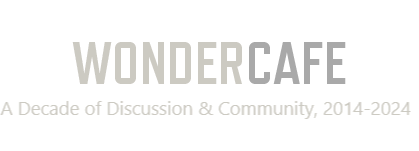Carolla
wondering & wandering
- Pronouns
- She/Her/Her
Yesteday I was at EDGE's 'unconference' on Hopeful Economics - heard some interesting, thought provoking speakers. One bit that especially caught my interest is B Corp - I had never heard of it. Their website indicates - "The B Global Network’s Theory of Change guides our mission to transform the global economy into a more inclusive, equitable, and regenerative system." Imagine that - an economy not driven by exploitation, extraction, greed and allegiance to shareholders' wealth - with a broader view of how business can be force for good in the world. One aspect of what they do is certify companies based on measuring their entire social & environmental impact.
I heard a really interesting presentation by Chandos Construction (B Corp Certified)- they hire on people who are socially marginalized & experience discrimination (possibly by race, incarceration history, minimal education etc.) - pay them a living wage, help them develop strong work ethic & skills & apprentice them into well paying careers in construction trades. (Did you know that in the next 8 years 46% of Canadian construction workers employed today are due for retirement? Trades job market demand will be strong.) He said something like - 'we need people anyway ... why not hire those who may truly benefit from a opportunity but often be overlooked? They usually turn into a highly loyal workforce over the years, and bring others along with the same benefits.'
Curious to know if any of you have heard about the B Movement, B Lab, B Corp etc? Their website has a search feature to locate B certified businesses (local and multi-national) so that people can make informed decisions about doing business & investing. Fascinating. A big culture shift. Wondering if we have the will to get there?
I heard a really interesting presentation by Chandos Construction (B Corp Certified)- they hire on people who are socially marginalized & experience discrimination (possibly by race, incarceration history, minimal education etc.) - pay them a living wage, help them develop strong work ethic & skills & apprentice them into well paying careers in construction trades. (Did you know that in the next 8 years 46% of Canadian construction workers employed today are due for retirement? Trades job market demand will be strong.) He said something like - 'we need people anyway ... why not hire those who may truly benefit from a opportunity but often be overlooked? They usually turn into a highly loyal workforce over the years, and bring others along with the same benefits.'
Curious to know if any of you have heard about the B Movement, B Lab, B Corp etc? Their website has a search feature to locate B certified businesses (local and multi-national) so that people can make informed decisions about doing business & investing. Fascinating. A big culture shift. Wondering if we have the will to get there?
